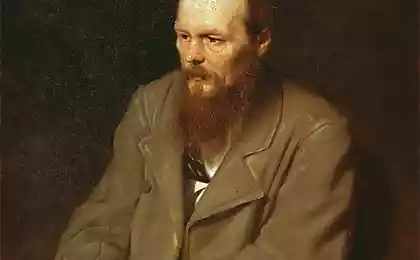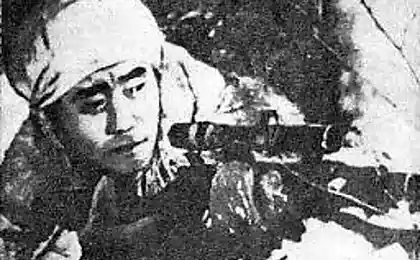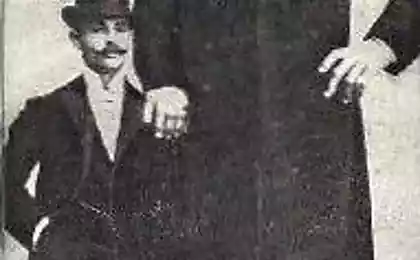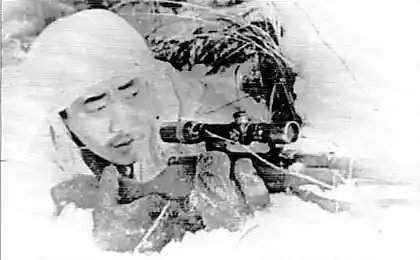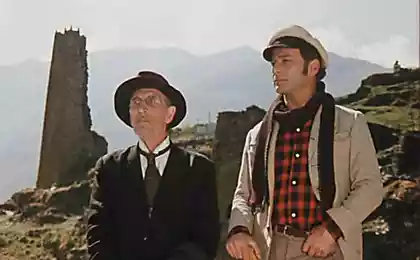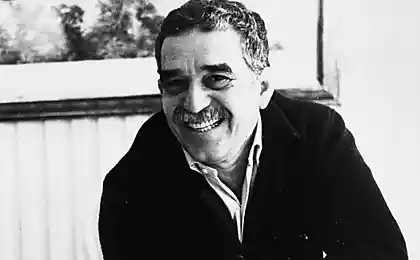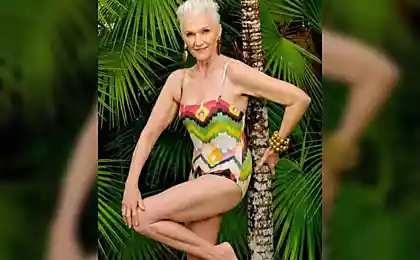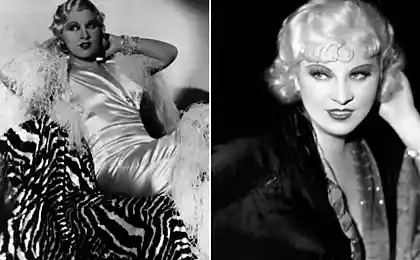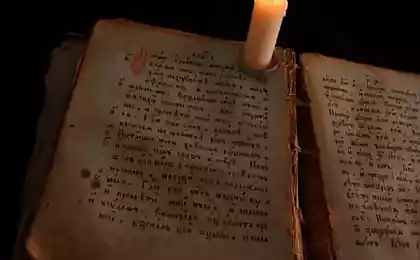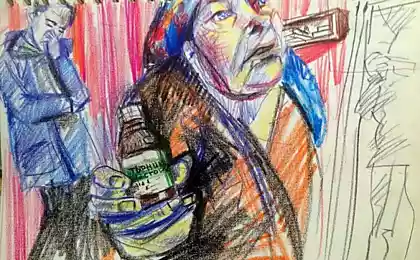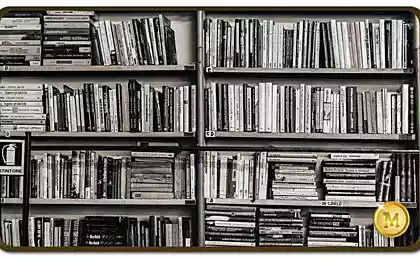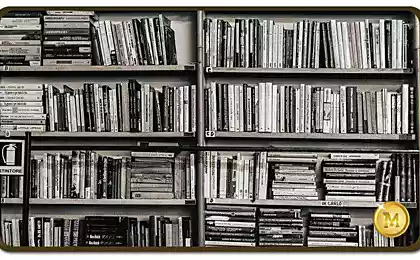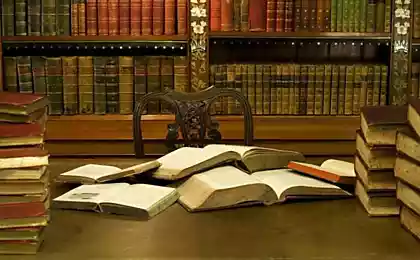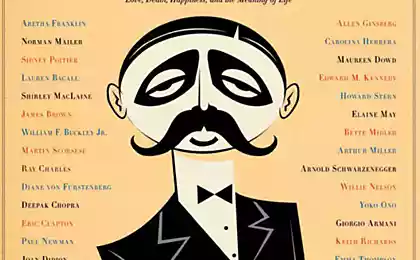252
5 books on existentialism that will help you look at life differently
1. Jean Paul Sartre, "Words"
The famous writer and psychoanalyst Sartre lived an interesting life, full of inner experiences and contradictions. The Words (1964) is an autobiographical novel by Sartre. The author candidly talks about his childhood, family and friends, about the first acquaintance with books and the gradual understanding of his vocation to become a writer. France of the second quarter of the XX century, then fashionable writers and books - Sartre writes about all this witty and sarcastic, but he treats himself no less critically: reveals to the reader his own childhood fantasies and delusions that reflected on his adult life.

2. Albert Camus "The Stranger"
Camus’s book is about not just living in a society beyond its patterns. A Frenchman living in Algeria learns of his mother's death. He is forced to go to the almshouse where she lived at the time of her death and take part in the funeral process.
The author describes in detail the inner state of the hero, in which there is no shadow of regret or sorrow, but only fatigue from the exhausting need to attend the funeral. In the further development of the plot, Mersault is involved in the showdown of a neighbor-pimp with the Arabs, inadvertently commits murder, gets tried and sentenced to death. People, as elements of society, are ordered to live according to the established canons.
It's not even about the laws of conduct or the norms of morality. Our worldview also falls under certain patterns that are beneficial to society. Woe to the one who sees the world differently. The least that threatens such an individual is misunderstanding and loneliness. Society leaves him indifferent, absolutely emotionless, he does not live, but dreams in reality. However, a realistic assessment of life itself will not be denied. He is alone with himself, waiting for death.
3. Fedor Dostoevsky "Teenager"
“Teenage” (1875) Dostoevsky – a novel-confession, a novel of upbringing, it tells in detail about the formation of the character and life position of a young man 19 years old, no longer quite a teenager, but not an adult. He is the illegitimate son of the landowner Versilov and the wife of a court man. Origin leaves an imprint on his whole life, he constantly feels the ambiguity of his situation.
Tormented by various experiences: contradictory feelings for his father, the desire to become rich and feel powerful, the desire to isolate himself from people and, on the contrary, the desire to return to the very thick of life, the thirst for mutual love, Arkady finds himself in a monstrous intertwine of the events of the novel. That is how he grows up and lives. Teenager, of course, is a very modern novel, a novel where the problems of youthful self-determination are presented with such a brilliant knowledge of human psychology that any, even an adult, will involuntarily see his reflection in the portrait of the hero.
4. Marcel Gabriel, To Be and Have
The Father of Modern Existentialism Søren Kierkegaard formulated, if not the basic rule, then a general principle of the philosophy of existence: “Man becomes a person if and only if he realizes his free will by freely giving form and direction to his life.” Regardless of the Danish thinker, Gabriel Marcel, the first French existentialist philosopher, came to a similar conclusion: “Every individual being is an expression of an ontological mystery, and a person can touch it by sinking into the depths of his personality.”
Marcel’s philosophical collection To Be and To Have consists of the Metaphysical Diary, a fragmentary entry from 1928-1933 that reflects the philosopher’s inner experience and everyday reflections, and the Essay on the Phenomenology of Possession, a report by Marcel at the Philosophical Society of Lyon in 1933. As the title of the work suggests, the central concepts of Marcel's philosophy are "being" and "possession" - mutually exclusive and opposite categories.
As an important example of the contrast between possession and being, Marcel cites the contrast between desire and love: To desire really means to possess without having. Desire can be viewed as both autocentric and heterocentric (the opposite of oneself and another). Love overcomes the opposite of oneself and the other because it takes us into the realm of being. In the diary, Marcel also reflects on such eternal values as loyalty, hope, love, which, in his opinion, reveal the nature of true being.
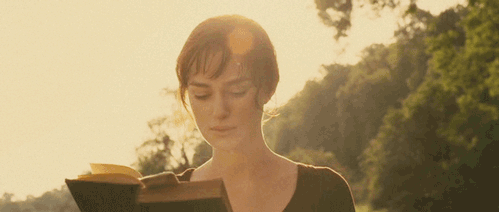
10 exciting stories you can read on the way to work
10 science series that will raise your intellectual level
5. Rollo May, Power and Innocence
Written in brilliant literary language and addressed to a wide readership, the book of one of the leading representatives of existential psychology is devoted to the search for the psychological roots of aggression and violence, problems of good and evil, strength and powerlessness, guilt and responsibility. published
Source: vk.com/lifeofpsy?w=wall-425148_1916
The famous writer and psychoanalyst Sartre lived an interesting life, full of inner experiences and contradictions. The Words (1964) is an autobiographical novel by Sartre. The author candidly talks about his childhood, family and friends, about the first acquaintance with books and the gradual understanding of his vocation to become a writer. France of the second quarter of the XX century, then fashionable writers and books - Sartre writes about all this witty and sarcastic, but he treats himself no less critically: reveals to the reader his own childhood fantasies and delusions that reflected on his adult life.

2. Albert Camus "The Stranger"
Camus’s book is about not just living in a society beyond its patterns. A Frenchman living in Algeria learns of his mother's death. He is forced to go to the almshouse where she lived at the time of her death and take part in the funeral process.
The author describes in detail the inner state of the hero, in which there is no shadow of regret or sorrow, but only fatigue from the exhausting need to attend the funeral. In the further development of the plot, Mersault is involved in the showdown of a neighbor-pimp with the Arabs, inadvertently commits murder, gets tried and sentenced to death. People, as elements of society, are ordered to live according to the established canons.
It's not even about the laws of conduct or the norms of morality. Our worldview also falls under certain patterns that are beneficial to society. Woe to the one who sees the world differently. The least that threatens such an individual is misunderstanding and loneliness. Society leaves him indifferent, absolutely emotionless, he does not live, but dreams in reality. However, a realistic assessment of life itself will not be denied. He is alone with himself, waiting for death.
3. Fedor Dostoevsky "Teenager"
“Teenage” (1875) Dostoevsky – a novel-confession, a novel of upbringing, it tells in detail about the formation of the character and life position of a young man 19 years old, no longer quite a teenager, but not an adult. He is the illegitimate son of the landowner Versilov and the wife of a court man. Origin leaves an imprint on his whole life, he constantly feels the ambiguity of his situation.
Tormented by various experiences: contradictory feelings for his father, the desire to become rich and feel powerful, the desire to isolate himself from people and, on the contrary, the desire to return to the very thick of life, the thirst for mutual love, Arkady finds himself in a monstrous intertwine of the events of the novel. That is how he grows up and lives. Teenager, of course, is a very modern novel, a novel where the problems of youthful self-determination are presented with such a brilliant knowledge of human psychology that any, even an adult, will involuntarily see his reflection in the portrait of the hero.
4. Marcel Gabriel, To Be and Have
The Father of Modern Existentialism Søren Kierkegaard formulated, if not the basic rule, then a general principle of the philosophy of existence: “Man becomes a person if and only if he realizes his free will by freely giving form and direction to his life.” Regardless of the Danish thinker, Gabriel Marcel, the first French existentialist philosopher, came to a similar conclusion: “Every individual being is an expression of an ontological mystery, and a person can touch it by sinking into the depths of his personality.”
Marcel’s philosophical collection To Be and To Have consists of the Metaphysical Diary, a fragmentary entry from 1928-1933 that reflects the philosopher’s inner experience and everyday reflections, and the Essay on the Phenomenology of Possession, a report by Marcel at the Philosophical Society of Lyon in 1933. As the title of the work suggests, the central concepts of Marcel's philosophy are "being" and "possession" - mutually exclusive and opposite categories.
As an important example of the contrast between possession and being, Marcel cites the contrast between desire and love: To desire really means to possess without having. Desire can be viewed as both autocentric and heterocentric (the opposite of oneself and another). Love overcomes the opposite of oneself and the other because it takes us into the realm of being. In the diary, Marcel also reflects on such eternal values as loyalty, hope, love, which, in his opinion, reveal the nature of true being.

10 exciting stories you can read on the way to work
10 science series that will raise your intellectual level
5. Rollo May, Power and Innocence
Written in brilliant literary language and addressed to a wide readership, the book of one of the leading representatives of existential psychology is devoted to the search for the psychological roots of aggression and violence, problems of good and evil, strength and powerlessness, guilt and responsibility. published
Source: vk.com/lifeofpsy?w=wall-425148_1916

